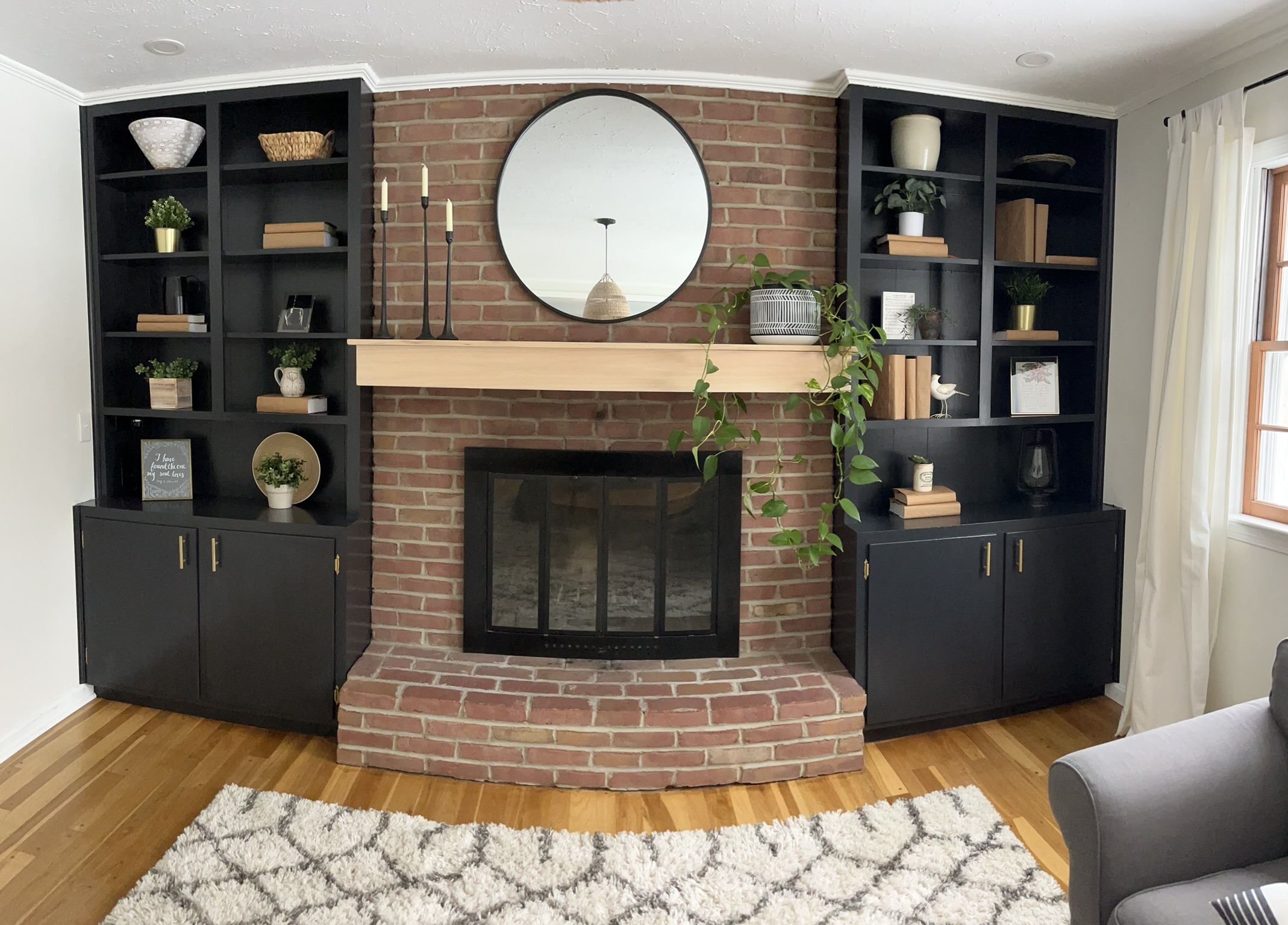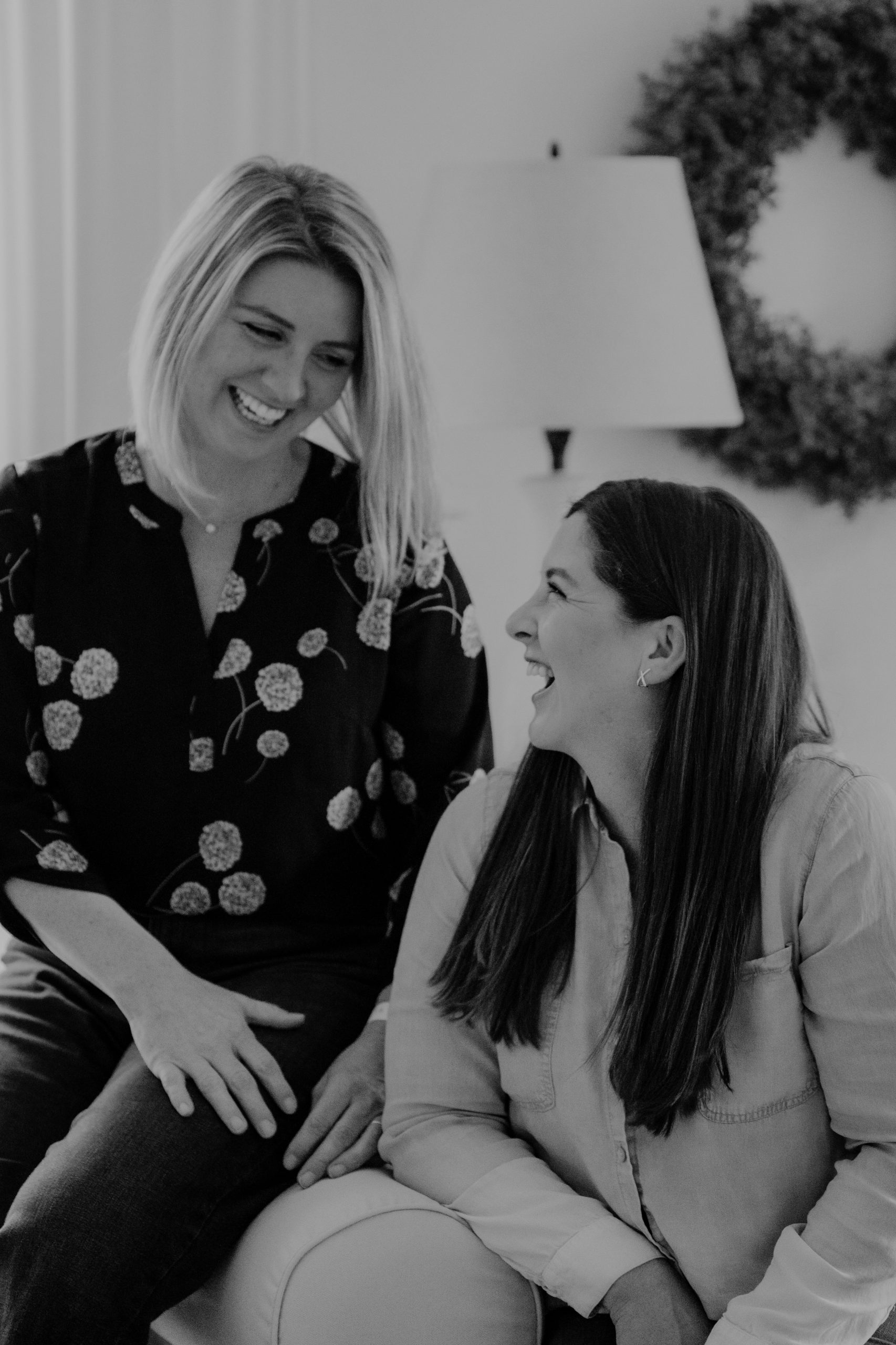What if I told you that you could have your dream home – a home that is beautiful, functions seamlessly, and highlights all that is most important to you -and it wouldn’t even cost you a dime? In fact, it might even save you money. Would you consider it? You probably guessed it by the title of this post . . . the path to this dream home is . . .DECLUTTERING!! I know, I know, before I lose you, just hear me out. There are some important things you need to know to finally declutter your home!
1. You Have Way More Things in Your House Than You Realize
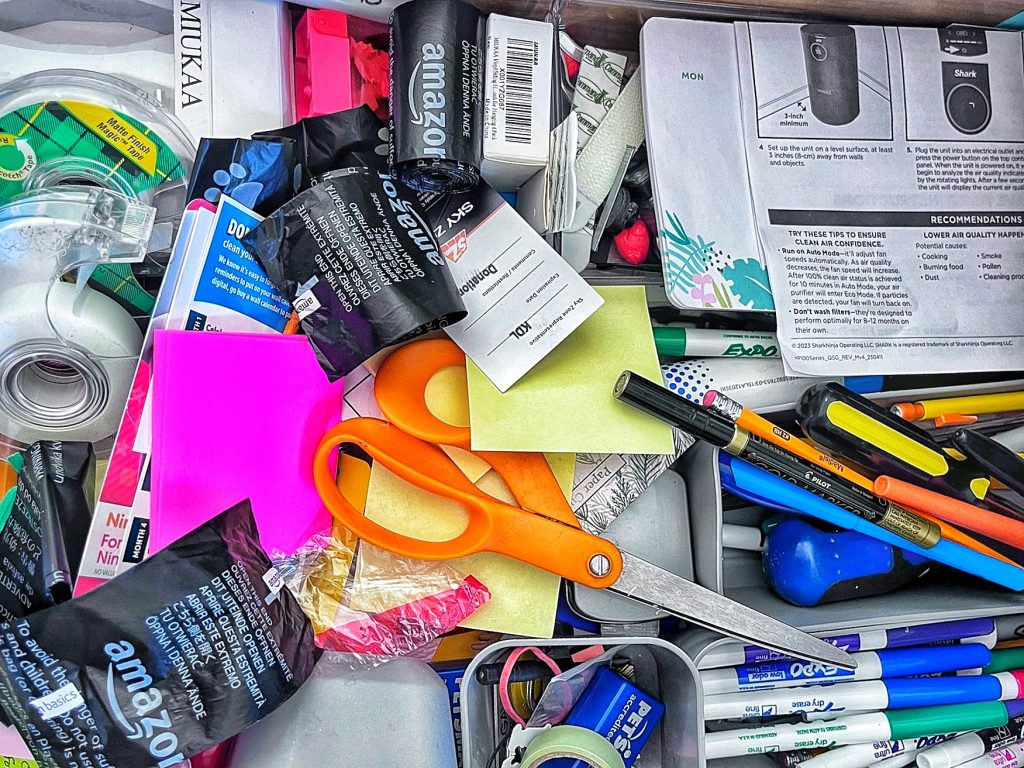
Most people use 20% of the items in their home, 80% of the time. Some statistics estimate that the average American home has 300,000 items inside! That means you’re using the same 60,000 items, while 240,000 items are just taking up space. Reducing your items by 1/3 – getting rid of 100,000 items, leaving 200,000 in your home (of which 60,000 are your most-used), can make a huge difference for your quality of life.
When we go into a home, many of our clients initially believe that they’re using all of the items in a given space. In fact, some of the most cluttered spaces belong to people who are certain they use everything they own. However, very quickly into the first decluttering session, our clients have been amazed by the items we uncover that they haven’t seen in months, years, or even decades. It turns out they’re not using all of the items in their space – not even close.
I think one of the reasons for this belief is that many times people use all of the items that are visible, forgetting whats at the bottom of the pile, or in the bottom of a box. Digging down to the bottom frees up space, often with little or no emotional difficulty. The reality is that there’s not enough time in the day to use all of the items that some people own.
2 .Your Best and Favorites are Being Hidden by the Excess
Another thing I hear often when I go to someone’s home is, “Don’t even ask me to get rid of my collection of _________ because those are really important to me!” I can’t tell you how often those really important collections are in a box, collecting dust. Meanwhile, items the client doesn’t even love are on prominent display. The result is the theme of this post which is – they have too much stuff. There are two main reasons for this that I have found to be true.
Reason One
The first is that the “special items” are so special that they need to be kept in a box out of harm’s way to last forever. While I understand this kind of thinking, it’s not actually all that logical. Most collections are worth far less money than people want to accept (there are of course exceptions, but not as many as most people think). What makes a collection special is the attachment that the individual has to the items. In fact, most of the time the children of the collectors are not interested and will either throw away or donate the items when their parents have passed away. Because of this, I urge you to display and enjoy the items you truly love.
Reason Two
The second reason why people keep their special collections in a box in their storage space is because the collection isn’t actually all that special to them. Sometimes it used to be special, or it represents another time period in the person’s life. Sometimes the collection was special to someone they loved. They dont really love the collection – they love what the collection represents.
In these cases, I encourage people to consider that they’re holding onto items in an attempt to hold onto the past – and it doesn’t really work. Usually, a far more effective method of honoring the collection is to choose one or two of the items and work them into your decor. Displaying the items, seeing them often, and enjoying the memories they bring up, rather than storing them and have those items take up up valuable space for living your current life. All of the excess gets in the way of seeing and enjoying our favorite things in our homes.
3. You’re Not Lazy, You Just Have Too Much Stuff
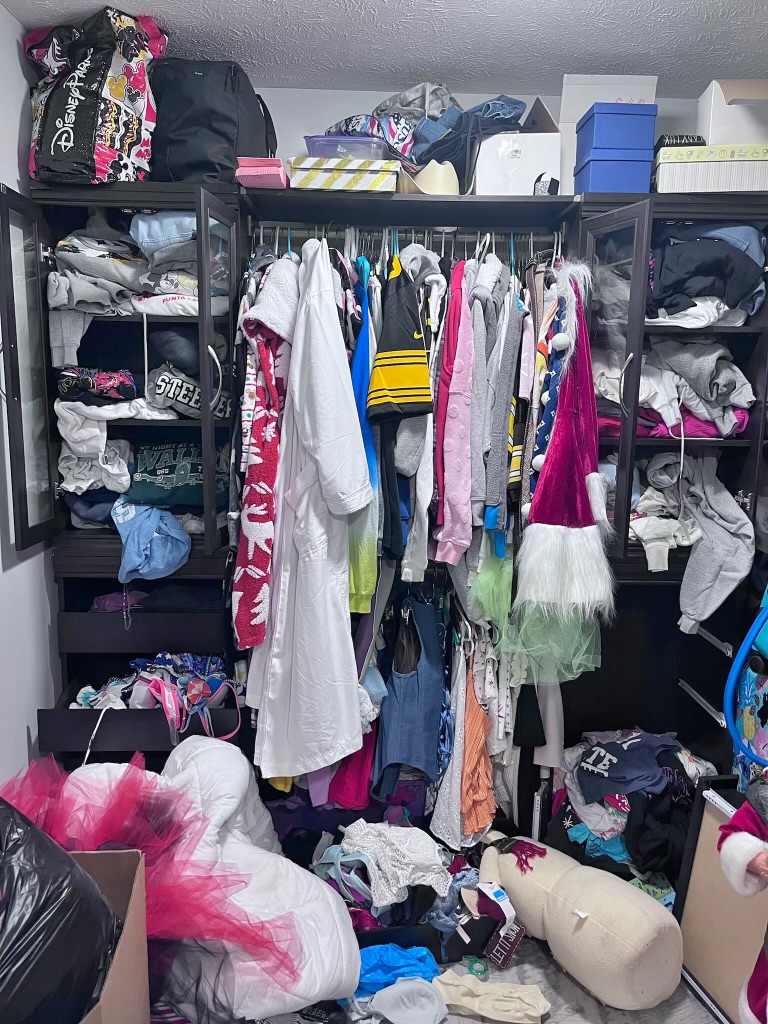
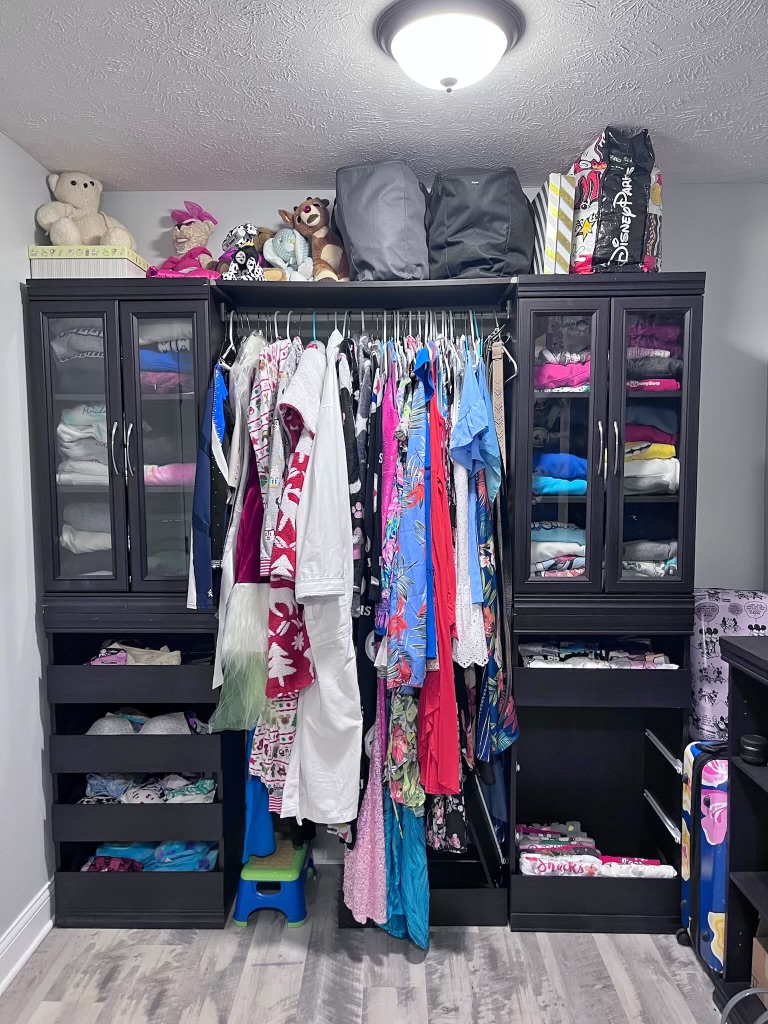
I used to go into some of my friends’ homes and wonder how they kept them so neat all the time! I would go home determined to keep my house just as neat. I would exhaust myself constantly tidying, cleaning and organizing. I would brainstorm and create elaborate organizational systems. Even still, my house would get so messy. I thought maybe I was just lazy and my friends were actually just working much harder than me. Then I discovered the joy of decluttering.
I began decluttering a little at first, then more and more. I was amazed that I didn’t miss anything that I was decluttering. I was even more amazed at how neat and tidy my house was staying. It felt like magic. I even noticed my family doing more to help.
You see, with fewer things around the house, we were all less overwhelmed. The messes were smaller and easier to tackle. My kids had fewer toys to pick up. Even when everything was taken out, it was a manageable amount, so we were less likely to procrastinate. I found myself spending less time on tidying, yet my house was tidier than ever. It was this experience that drove my passion to start this business. I was amazed at the incredible freedom that was derived from owning less!
4. Your Family Will Function Better With Less
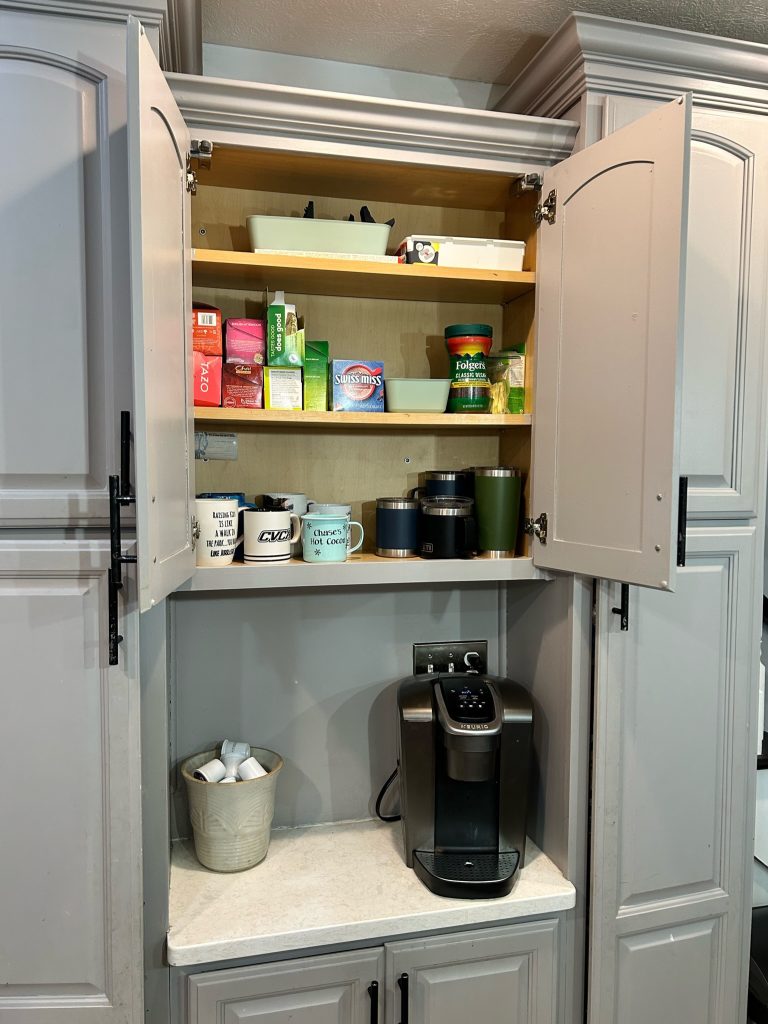
Related to the point above, your family will function with much greater ease after you declutter. We are at a point in our family that we feel like we are constantly on the go. With two teenagers who can’t yet drive, plus an active 10-year old, not to mention all the things that my husband and I are into, it feels like we are constantly in the car. We come home to drop off book bags, grab sports bags, musical instruments, and a quick snack. By the time we get home we are all exhausted.
We are keeping track of crazy schedules, sports and music equipment, learning to drive, jobs. The best thing we have ever done to manage all of it, is getting rid of all the extras in our home. Just last weekend my husband said, “It’s amazing that despite the absolutely crazy 2 weeks we have just had, our home is still neat and tidy! That never would’ve happened before!” He’s right – our entire family functions more smoothly with less stuff.
5. Every Item You Own is on Your To-To List
Everything we own, owns us. It’s a saying you may have heard before. It’s often said, because it holds so much truth. Every item we own requires something from us. We are required to clean it, maintain it and store it. Each item has to be put away, brought back out. Some washed or folded. We need to remember we have it, replace the batteries, plug it back in, to hang it up, lay it out, dust it off, and organize it. Not every item requires every action, but every item requires some action. If we want to free up our time, we need to have fewer things on our to – do lists!
6. Your clutter is increasing your stress – if you’re a woman
There are multiple studies which link cortisol levels to perceived clutter levels. I find it interesting that the link exists primarily for women. Women often complain that they can’t seem to get their husbands on board. They often say that their husbands seem entirely unaffected by the clutter, but its making them completely crazy.
Scientifically speaking, its makes total sense. Women perceive clutter as a threat to their safety, increasing her cortisol levels. Increased cortisol is linked to a lot of other health problems including obesity, heart problems, overheating, acne, fatigue and more! While none of this may get a husband’s attention – here’s something that might. Increased cortisol levels inhibit the release of hormones responsible for a woman’s libido. Just sayin’.
7. Kids thrive with less
In a study done by the University of Toledo, researchers were looking for the ideal number of toys for a child in a given setting. That ideal number? 16! That may seem shocking, but if you remember that clutter causes stress, it makes sense that children would feel more calm and able to play longer and more creatively in a less stressful, less cluttered environment. You might even see this play out in your own home. Perhaps you have a room dedicated only to toys!
A common scenario
Let’s give a very realistic scenario: Sometimes kids go into a room filled with toys, intended to be the play room, but now is simply a toy storage room, and they take the toys and play somewhere else. Then, they get more toys and play in another location in the home. Before you know it, the whole house is overrun by toys. You tell your children to clean up these toys and you end up having a giant meltdown on your hands. Who can blame them? If you, the adult with a fully developed nervous system, are overwhelmed by the mess of toys, would it not stand to make sense that your child, with their not yet fully developed nervous system, would be exponentially more overwhelmed?
Many times parents buy their kids an excessive amount of toys because they think it will help their children’s development and growth. But research repeatedly points to the opposite. Children thrive in highly simplified spaces.
A major barrier to decluttering kids’ toys is fear that kids will revolt. They might at first, but by reducing the inventory of their toys you will be allowing more fruitful, creative play. You will be reducing their stress load, and teaching them the valuable skill of letting go of their items rather than holding tight to them. You are giving your children a lifetime of decluttering skills.
8. The Spice of Life is Not Variety – It’s Freedom
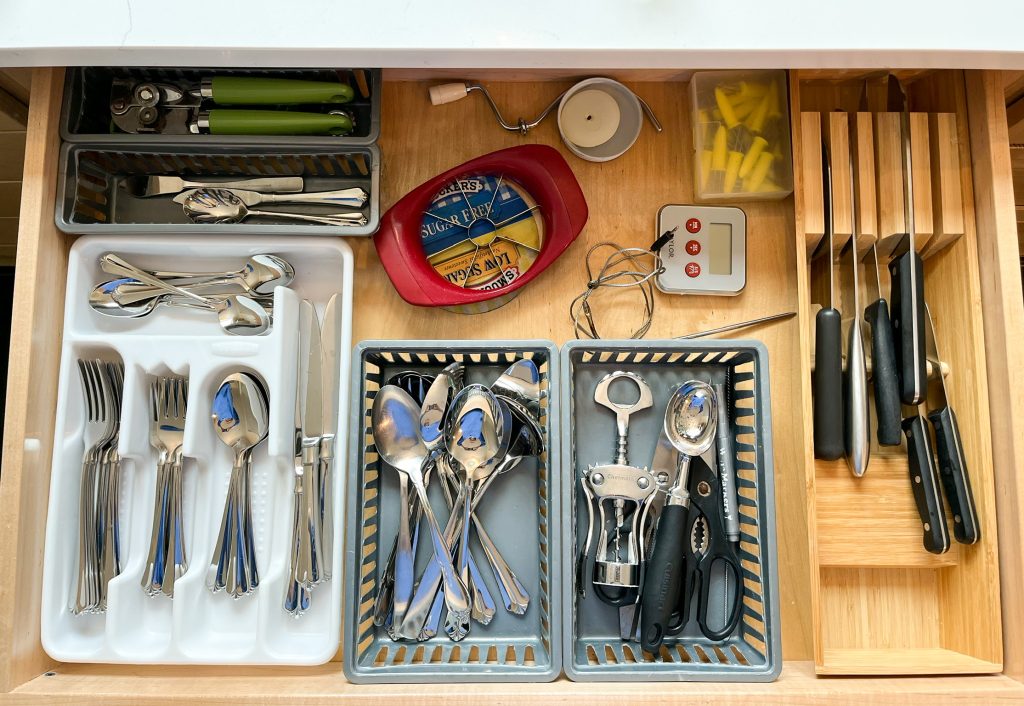
I have often heard it said that “Variety is the Spice of Life”. That’s a great saying for some things like traveling to new places, eating at different restaurants, and enjoying the company of different types of people. When it comes to keeping a variety at hand in your home, however, variety becomes the poison of life. It contributes to decision fatigue.
If you need a jacket and have multiple available, you’ll need to make a decision about that (and store all of the options). If you’re going on a trip and have several luggage sets, you’ll need to make a decision about that (and store all the options). I have found that one of the biggest difficulties for women when it comes to keeping their closets in order is the desire to “have options”, but every option comes at a cost – the cost to make a decision. The cost to store the items. The cost of time spent.
The reality is that a radical reduction in the daily “options” leads to an immense amount of freedom. Freedom to get dressed quickly with the fewest number of decisions to make, freedom to have your time back, freedom to spend your money on things that you’re actually passionate about. Freedom to have space. Freedom to live the life you actually want to live, not the one you’re stuck living in the mess of your things.
Next Steps
With these helpful insights you have the leverage you need to go start decluttering your home right now! You have nothing to lose except the weight and stress of too much stuff in your home.
If you need more ideas on how to get started, check out our post on the Top Ten Things to Declutter From Your Home and start making your way to peace and freedom in your home!

